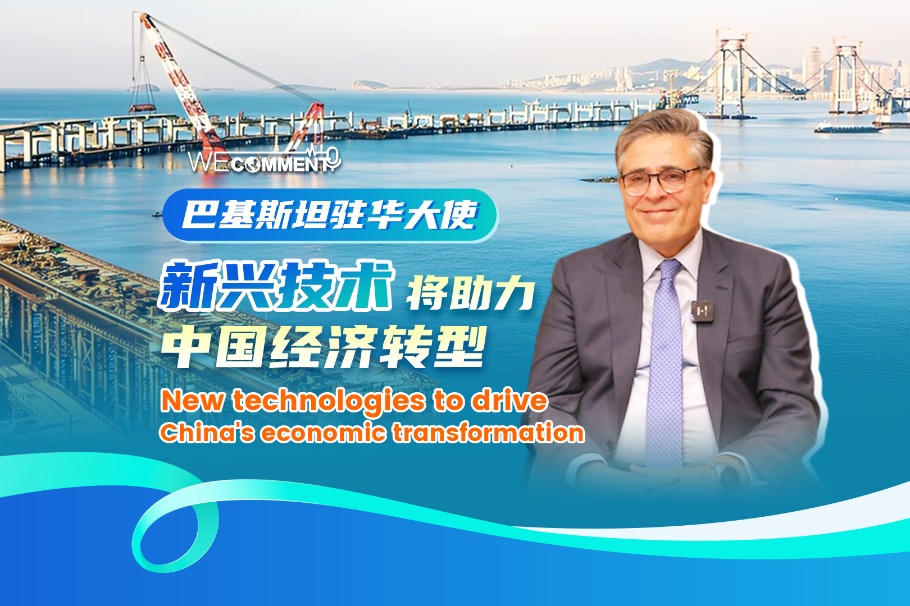Innovation put high on govt agenda

|

A woman works on a blanket at a factory in Nantong, Jiangsu province. Last year, textile manufacturers in the eastern city filed a total of 4,520 patents. Xu Ruiping / for China Daily
|
Chinese enterprises must focus more on R&D amid rising labor, other costs
Innovation is widely expected to be a major initiative of the 12th Five-Year Plan (2011-2015) that will be covered at the annual parliamentary sessions in March.
The need for Chinese enterprises to focus more on research and development (R&D) has acquired a special urgency amid rising labor and raw material costs.
Many highly industrialized cities in the coastal provinces, particularly Zhejiang province, reported a serious shortage of labor as many migrant workers chose to stay in their home counties and towns in the interior provinces after the Spring Festival break.
Widespread industrial pollution has also served as a grim reminder of the price paid for breakneck economic growth in the past decades. More local governments are beginning to shift their emphasis from high GDP gains to slower but cleaner growth under the buzzword of "sustainability".
In the Communist Party of China (CPC) Central Committee's proposal on formulating the 12th Five-Year Plan (2011-2015), the central government pointed out that China has not yet stepped onto a sustainable development path and the ability to innovate still lags behind that of developed countries.
Nearly all the local governments of the industrialized cities in the Yangtze River Delta region have tamed their growth targets for the next five years. Instead of pursuing GDP growth alone, "economic planners in these enterprising cities are gearing up to lead the national drive for innovation", says Feng Shujun, an analyst at the Shanghai Academy of Social Sciences, a top think tank.
Huang Zheng, an analyst of the National Development and Reform Commission, the nation's economic planning agency, says that "innovation will be the most pressing task" for industrialized regions that are coming under tremendous pressure from resource shortages and that require urgent restructuring.
In their respective regional 12th Five-Year Plans, Shanghai, Zhejiang and Jiangsu have all attached great importance to innovation, which is seen as the primary impetus for economic restructuring.
Innovation has been given exceptional prominence in Jiangsu, which hosts many foreign industrial companies.
The provincial government says it will allocate 690 million yuan (76.4 million euros) for major science and technology projects.
Another 100 million yuan has been earmarked to support agriculture research and development.
The Jiangsu government says it expects total investment in R&D in the province to reach 100 billion yuan in the next five years, of which 80 billion yuan will be invested by domestic and foreign enterprises. The estimated investment in innovation will contribute more than 55 percent of Jiangsu's economic growth by 2015.
To many economic planners, "innovation" also means adequate protection of intellectual property rights (IPR).
Liu Chuanzhi, founder of Lenovo, the world's fourth-biggest maker of personal computers, says in a recent interview with the US-based San Francisco Chronicle that his company will give Apple Computer a run for its money at least in the Chinese market.
Apple, he says, is "going to have to hold up against a very significant onslaught from (Lenovo)". He also says that he has already beaten Dell in China.
But Liu concedes that the lack of IPR protection in China is still a "serious problem". IPR infringement is holding back innovation in China, he says.
The local government of Nantong, the well-known textile capital of east China, is taking positive steps to protect its garment makers from having their profits eroded by counterfeiters.
Home to two national textile bazaars with a combined turnover of about 50 billion yuan a year, Nantong's Copyright Management Office is taking center stage in the city's innovation drive.
Lin Mingqiu should know. A Taiwan native, Lin established a home textile factory in Nantong making bedsheets, curtains and other household goods.
Although the design and patterns of most of his products are patented in Taiwan, he was helpless in stopping many other manufacturers from copying his products and using his brand names. He had no choice but to seek help from the patent office.
Beginning in 1997, the Nantong patent office set up a branch in the bazaars to register new patents and mediate copyright disputes between the vendors.
Although Lin's case was not properly settled then, a copyright management office was soon launched in Zhihao Market in 1997 to help register new patents and mediate copyright disputes.
A patent and design institute was set up in the same year in Nantong to educate manufacturers in copyright law. In addition, a special court was set up in Nantong Intermediate People's Court in 2001 to handle IPO cases.
A total of 4,520 patents were filed by textile makers in Nantong last year, indicating that manufacturers are willing to invest in new designs and patents with the knowledge that their investments are protected, says Yuan Hongbing, chairman of Jiangsu Goldsun Clothing Industry Co, a leading home textile manufacturer in Nantong.
"Before the copyright management office was launched, we did not have a single design of our own. But now we come up with about 700 new patterns every year and the number is more than 10,000 in the Zhihao Market as a whole," Yuan says.
Professor Wang Qian from the Intellectual Property School of East China University of Political Science and Law also says IPR protection in Nantong has helped create a sound competition environment and innovation among local textile companies.
"Innovation in these companies will ultimately attract more foreign investment and promote the Nantong brand of home textiles," Wang says.
"Protecting intellectual property rights such as copyrights will help to boost economic growth and more importantly, help to build China into an innovation-oriented country," says Yan Xiaohong, vice-minister of the General Administration of Press and Publication.
Today's Top News
- HK unveils sweeping steps after huge blaze
- China releases white paper on arms control
- China blasts new remarks by Japan's prime minister on Taiwan's legal status
- Investment grows as firms make tech shift
- Lessons of HK fire tragedy must be learned: China Daily editorial
- China releases white paper on arms control in new era






























